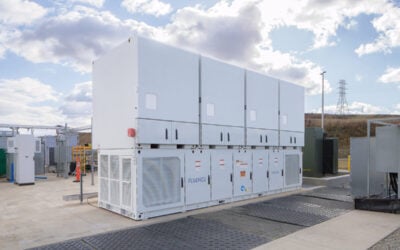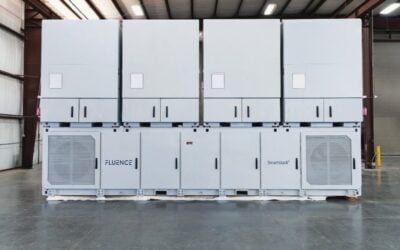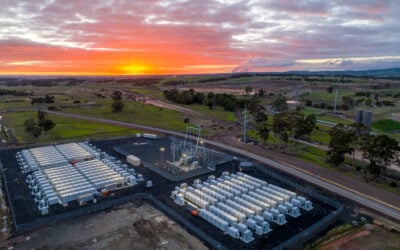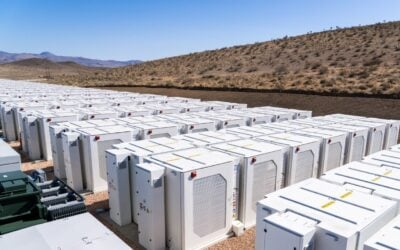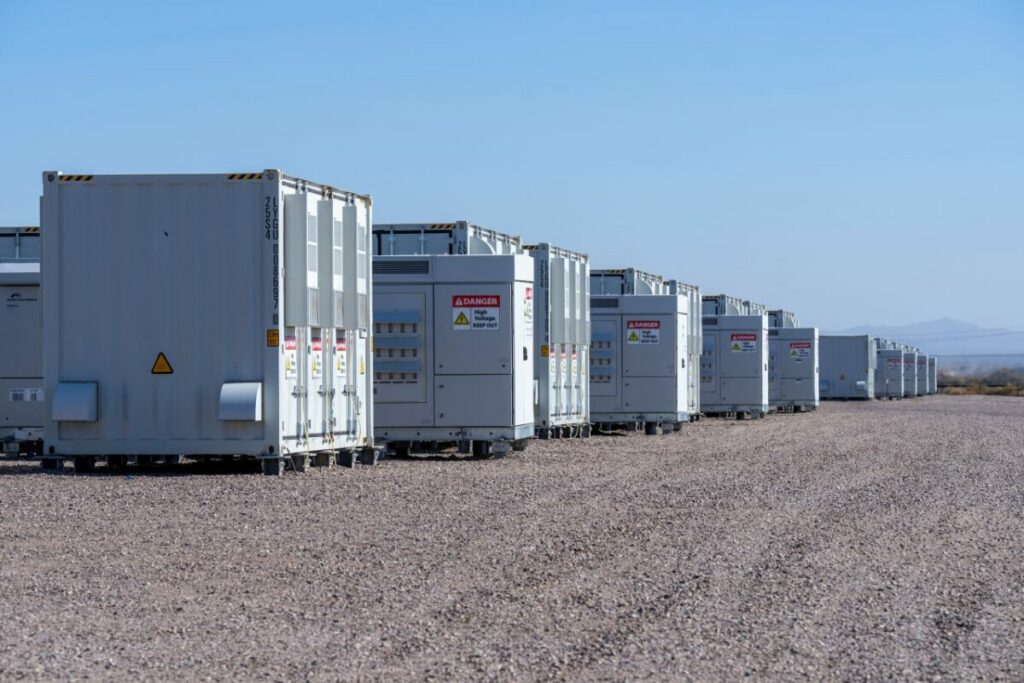
The first quarter of 2024 saw declines in US utility-scale energy storage deployments and revenues for US-based or focused system integrators, but the long-term pipeline and outlook remains healthy.
Quarterly revenues for major battery energy storage system (BESS) integrators Fluence, Stem Inc and Wärtsila all fell year-on-year, discussed by their CEOs in analyst calls.
Meanwhile, US BESS deployments were flat, trade body American Clean Power (ACP) reported.
Utility-scale energy storage installations were 447MW/871MWh across the US in the first three months of the year, a 3% fall in MW power and 19% fall in MWh compared to Q1 2023’s figures, the ACP noted. It brings the US’ total grid-scale BESS capacity to 17.8GW/47.5GWh.
Try Premium for just $1
- Full premium access for the first month at only $1
- Converts to an annual rate after 30 days unless cancelled
- Cancel anytime during the trial period
Premium Benefits
- Expert industry analysis and interviews
- Digital access to PV Tech Power journal
- Exclusive event discounts
Or get the full Premium subscription right away
Or continue reading this article for free
However, the energy storage development pipeline soared 61% from 19,621MW to 31,627MW, with an average quarterly growth of 11% since 2022.
The correlation between quarterly deployments as recorded by ACP and registered revenues by those firms is not a direct one. Revenues are paid and registered at various stages of project construction and final completion is only one of those stages.
Fluence, Stem Inc and Wärtsila all put their falling revenues down to the timing of projects and periodisation of revenues and emphasised that, as ACP’s figures show, development pipelines are still growing well.
Fluence CEO: ‘Revenue moves around the year’
Fluence CEO Julian Nebreda explained that the stages of revenue recognition include the contract order being signed, the completion of manufacturing and transfer of title of equipment to the customer, substantial completion and final completion of the project – but the bulk is from the transfer of title of equipment.
He cautioned against drawing too much meaning from a single, quiet quarter – its revenues fell 11% – in light of the relatively small number of projects companies like it are working on.
Nebreda: “When we go back and look at our history, it (revenue) moves around. So this year it is quite back-ended. Last year was very divided equally around each quarter, the year before was in the centre of our fiscal year where most of the revenue was. It moves around because it is driven by our customer projects’ time, which, in a way, is driven by what they signed with their own PPAs (power purchase agreements).”
He added it was highly confident in making up for those revenues in Q4, hence why it was reaffirming its previous full-year guidance (its financial year runs to 30 September).
CFO Ahmed Pasha also said that the company’s results included settling litigation with Siemens Energy, the energy technology company spun out into an independent company several years ago by Fluence’s own joint-majority shareholder Siemens AG. Siemens AG owns 17% of Siemens Energy shares, and together with utility and independent power producer (IPP) AES owns a majority of Fluence.
The firm has also been engaged in legal tussles with other companies for past projects, namely the Diablo and Moss Landing projects in California. Discussing the Siemens litigation, Pasha added: “Our continued execution further demonstrates that our legacy backlog issues are behind us, and we are benefiting from our higher margin backlog.”
Wärtsila: ‘It’s not a general trend’
The energy storage & optimisation (ES&O) arm of Finland-headquartered power solutions firm Wärtsila saw a much greater fall of 75%.
The company said this was largely attributable to the company applying periodisation to its accounting and revenues being recognised later in the year based on delivery and completion timelines, as Energy-Storage.news noted last week.
CEO Håkan Agnevall said: “It’s not a general trend. We do see a positive development of our agreement business also in energy. For us, one of the major metrics continues to be the customer’s renewal rate on the agreements, and they are 90 percent, so a strong testimonial that we are creating value for our customers.”
In response to an analyst’s question, Agnevall added that the periodisation doesn’t necessarily mean delays: “It’s just that we have a project basis and milestones and payments are planned in a certain way and unfortunately, they are not planned for quarterly reporting. It’s not that things are slipping and sliding, it’s just that the projects in the business have a certain cadence. It leads to sales recognition in certain times.”
In response to another, Agnevall added that the majority of its BESS order intake was in the second half of 2023, and so the battery procurement for and revenue recognition for completion of those projects would largely be seen in the second half of 2024.
“You cannot buy the batteries earlier because then you would get the batteries too early, they will deplete so they will not deliver the performance you have promised to your customers,” he added.
Stem Inc meanwhile saw a 62% drop which was related to legacy contracts signed with customers prior to July 2023, explained in our coverage of its results last week here.
Earnings call transcripts courtesy of Yahoo Finance and Wärtsila.

